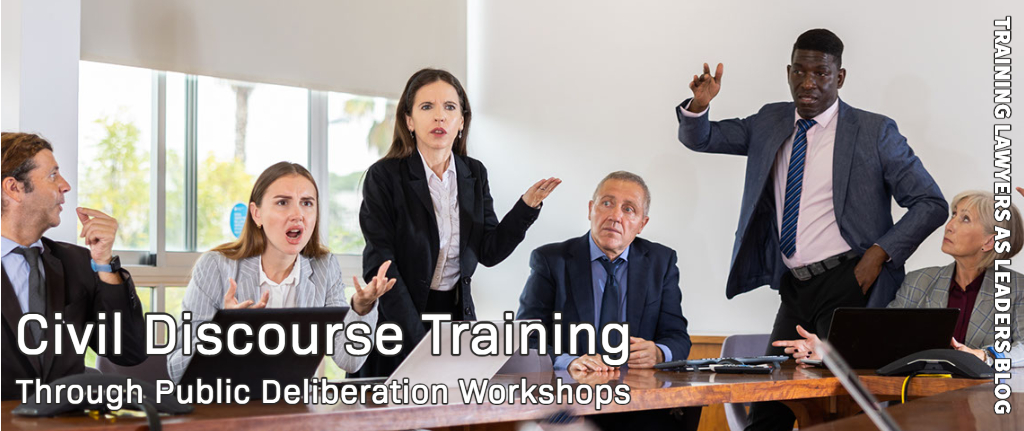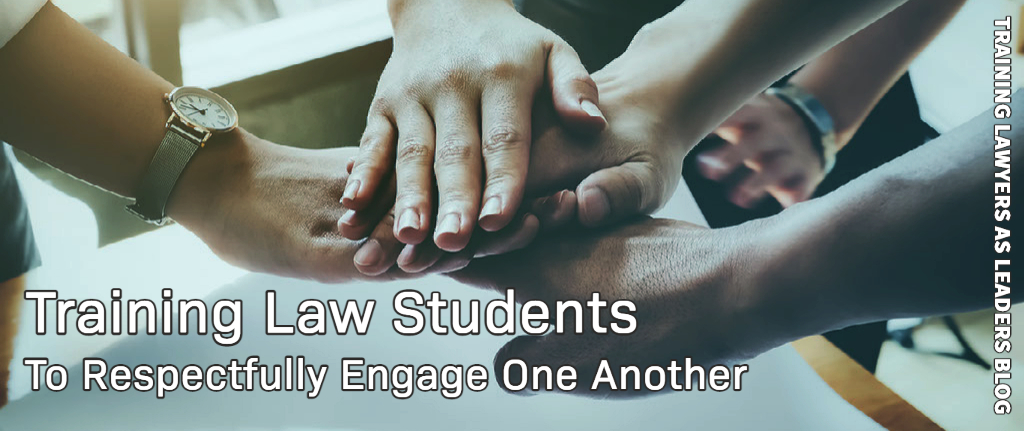
Civil Discourse Training through Public Deliberation Workshops
Last week, in Training Law Students to Respectfully Engage One Another, I shared a new addition to our extended orientation program for entering students. In the second week of law school, our students participate in a Public Deliberation Workshop to teach better methods for engaging in conversations in law school and beyond. In this post, I want to share some of the feedback from our students through surveys conducted after the workshops.
On the survey, students were asked, “What, if anything, might you do differently as a result of this forum?” I grouped the representative quotes into the following categories of “themes” I saw in the responses:
Listening skills:
- “Listen to understand rather than listen to be understood.”
- “Be sure to listen and not just wait to respond.”
- “Seek to listen fully before speaking; ask more questions.”
- “I will now listen to others with more intent.”
More sensitivity to others’ perspectives and different life experiences:
- “I have a new perspective now for understanding others’ opinions.”
- “I can now see perspectives I didn’t previously consider.”
- “Be more aware of how big of a problem it is, even though it may not be personally a problem of my everyday life.”
- “I will deliberate on sensitive topics differently, attempting to listen better.”
Less judgmental and more respectful:
- “I hope to be more open to listening and responding positively instead of looking for areas of disagreement.”
- “Really work on “learning” someone instead of judging them.”
- “I think I will treat opinions with more respect in general.”
More Open-minded:
- “I’ll try to be respectful and allow others to speak and listen with an open mind.”
- “I came into the discussion ready to defend an option and my answer, but I came out understanding the other options better.”
- “Now, I will be more open-minded to solutions that don’t immediately appeal to me.”
Application of skill beyond law school:
- “I will bring skills learned in this forum to my personal life to communicate with my family better.”
The workshop facilitators guide the participants through a conversation about three possible approaches to the issue. When students were asked, “Are you thinking differently about this issue now that you have participated in the forum,” they responded with answers such as:
- “Yes, I had little knowledge on the subject, and hearing different experiences changed my perspective on the topic.”
- “Hearing about others’ perspectives shifted my perspective from starting strongly in Option 3 and shifting more towards Option 1.”
- “Yes, I am thankful for the opportunity to hear the opinions of others without trying to squash someone’s opinion before we can fully understand the topic.”
We are encouraged by the responses, and we hope these Public Deliberation Workshops will result in students listening more earnestly and respectfully to others with different life experiences and viewpoints. The goal is to help participants find shared values and build a community that can lead to innovative problem-solving together. What a difference we can make if law students enter the profession with this approach to building relationships in their organizations and communities.
– LEAH





